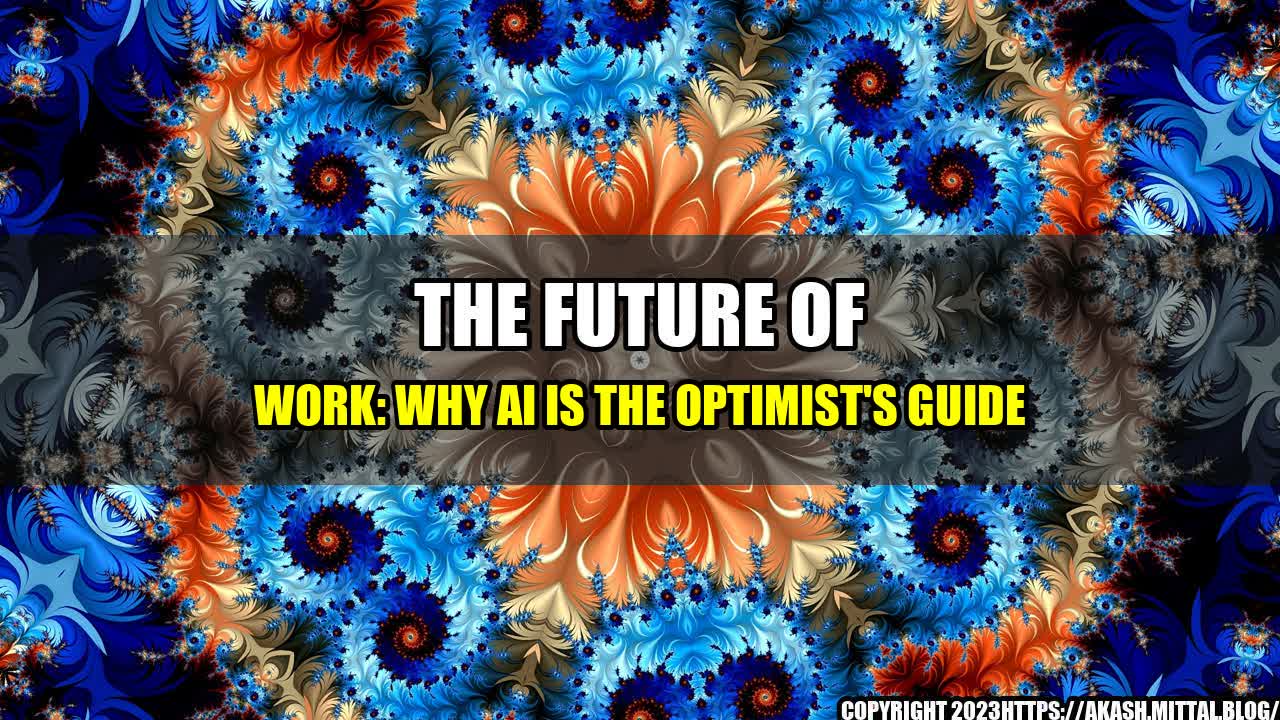
Imagine this. You walk into your office on a Monday morning and are greeted by your new colleague, an AI-powered robot that's been tasked with helping you streamline your workflow. As you settle in, your robot-colleague flags an email that's high-priority and needs your immediate attention. It also suggests a few tweaks to a project you've been working on, based on analysis of industry trends and data. And just like that, you're off to a productive start to your week, with the help of your new collaborator.
This scenario may seem like science fiction, but it's quickly becoming a reality in workplaces across the world. Artificial intelligence (AI) is revolutionizing the way we work and transforming the workforce as we know it. And contrary to popular belief, this change isn't something to be scared of – it's something to be optimistic about.
Despite the concerns that machines will replace human workers, the fact is that AI can actually help us work smarter, faster and more efficiently. And with the rise of remote work and the need for more flexible arrangements, AI is more necessary than ever before.
One of the key benefits of AI in the workplace is its ability to boost productivity. Large companies rely on AI to streamline customer service processes, automate repetitive tasks such as data entry, and improve supply chain efficiency. In fact, a 2019 report by the International Data Corporation found that "around 20 percent of companies will use AI to make decisions and provide real-time information by 2020."
However, AI isn't just useful for large corporations. Small- and medium-sized enterprises can also benefit from its time-saving features. Automated chatbots, for example, can handle customer queries and enable businesses to provide 24/7 support without hiring extra staff.
The benefits of AI also extend to cost savings. By automating tasks that don't require human input, businesses can save money on employee salaries and free up resources for more meaningful work. A report by McKinsey & Company found that "automation could free 25 percent of employees' time, allowing them to focus on higher-value tasks."
AI algorithms and tools can help decision makers process vast amounts of data, quickly analyze trends and patterns and make better decisions. In industries such as finance and healthcare, AI can assist in complex data analysis and offer insights that human analysts might miss.
While AI has already made a significant impact on the way we work, the full potential of the technology is yet to be realized. To ensure that it maximizes its potential, we need to ensure that the implementation is ethical, transparent, and effective.
One of the main concerns about AI is its potential impact on jobs. However, with the right policies and approaches, AI can actually create jobs in industries such as machine learning and programming. We also need to ensure that AI is not being used in ways that undermine individual privacy or human rights.
AI systems must be transparent, allowing users to understand how they work and make informed decisions about their use. Transparency can help to alleviate concerns about bias and build trust between humans and AI systems.
Effective implementation of AI requires careful planning, investment and collaboration between stakeholders. Companies need to involve employees in the decision-making process, train staff on AI tools and workflows, and develop strategies to mitigate potential risks.
AI is changing the nature of work, but it's not something to be fearful of. Instead, we should embrace the technology and explore how it can help us work more effectively and efficiently. With the right approach, AI can unlock new possibilities for businesses and individuals, lead to better decision-making and ultimately, improve the way we work.
Technology/Artificial Intelligence
Curated by Team Akash.Mittal.Blog
Share on Twitter Share on LinkedIn